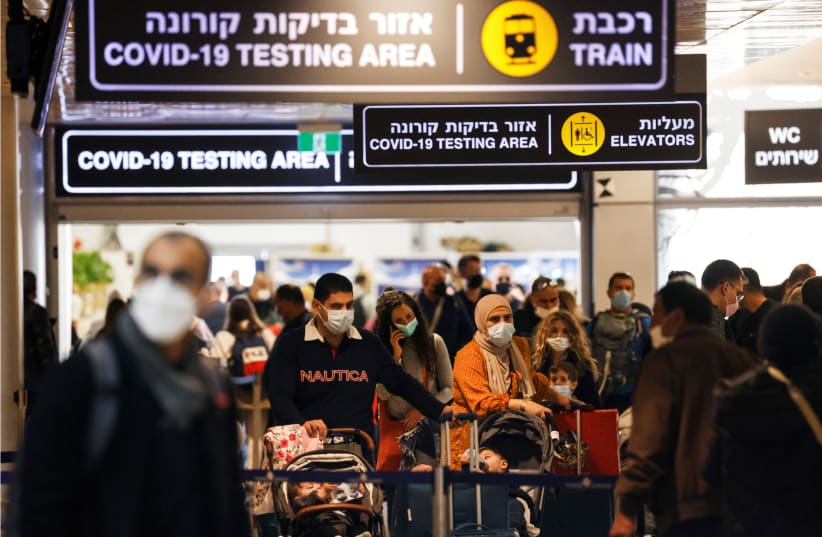The government approved the Health Ministry’s recommendation to classify the United States, Italy, Belgium, Germany, Hungary, Morocco, Portugal, Canada, Switzerland and Turkey as “red” states and place them under a travel ban on Monday.
The recommendation also requires the approval of the Knesset Law and Constitution Committee. The committee is set to meet for this purpose on Tuesday morning, just hours before the measure is supposed to come into effect at midnight between Tuesday and Wednesday.
Israelis are not allowed to travel to red countries unless they receive special permission from a governmental Exception Committee. In addition, if they return to Israel, they need to be quarantined for a minimum of seven days, even if they are fully vaccinated.
Individuals who are not considered protected are required to remain in a coronavirus hotel for seven days.
The group of red countries already includes the UK, Denmark, the United Arab Emirates, Ireland, Norway, Spain, Finland, France, Sweden, South Africa and several dozen other African nations.
“We do not intend to close the skies, but it could be that in practice this is what is going to happen,” said coronavirus commissioner Prof. Salman Zarka, speaking before a joint session of the Knesset Health and Constitution committees.
Israeli borders have already been closed to foreign nationals since the end of November, with very limited exceptions.
All the travel restrictions are set to expire on December 29, but they might be extended, as it has already happened twice in the past month. Countries remain on the red list until the authorities decide to change their status.
Banning travel between Israel and an increasing number of countries, due to the COVID-19 pandemic, will not hurt its international standing significantly, Foreign Minister Yair Lapid argued on Monday.
“I was asked in recent days if declaring a long line of countries red causes diplomatic harm,” Lapid said at a Yesh Atid faction meeting. “The answer is it does, but we know how to manage it.”
The Foreign Ministry speaks to each individual country to explain its considerations, he explained.
“The countries of the world understand us, because they’re getting hit much worse than we are,” he said.
The foreign minister’s remarks came hours after Israel declared the US, Canada and eight other countries “red,” in order to try to stem the spread of the Omicron variant of COVID-19. Anyone returning from those countries must quarantine for at least seven days, even if they are fully vaccinated. The first day of that quarantine period would be at a coronavirus hotel, until they receive the results of a PCR test taken upon arrival in Israel.
The ban on all foreigners from entering Israel, with special exceptions, remains in place.
Emmanuel Navon, author of The Star and the Scepter: a History of Israel’s Foreign Relations, agreed with Lapid’s assessment.
Other countries “know about Omicron, and they know that the decision is not arbitrary,” Navon stated.
Lapid also argued that the decision to ban Israelis from traveling to more countries was not taken out of political considerations, an apparent hint at the first wave of COVID-19. Then-US vice president Mike Pence asked then-prime minister Benjamin Netanyahu not to ban travel between Israel and the US, so the government banned all travel abroad in order not to single out the Americans.

